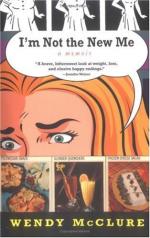“We have earned less this year than the fisherman in the dory before the door of our summer home.” Perhaps it had been a good year for Jack; possibly a poor one for those other fishers, who spread their brains and hearts—a piteous net—into the seas of life in quest of thought and feeling that the idlers on the banks may take a summer’s fancy to. But the truth remains. A successful teacher, a clever manufacturer, a steady mechanic, may depend upon a better income in this country than the writer whose supposed wealth he envies, and whose books he reads on Sunday afternoons, if he is not too sleepy, or does not prefer his bicycle.
When we see (as we have actually done) our market-man driving by our old buggy and cheap horse on holidays, with a barouche and span, we enjoy the sight very much; and when I say (for the other occupant of the buggy has a little taste for two horses, which I am so plebeian as not to share, having never been able to understand why one is not enough for anybody): “But would you be the span-owner—for the span?” we see the end of the subject, and grow ravenously contented.
One cannot live by bread or magazine stories alone, as the young daughter of toil too soon found out. Like other writers I did hack work. My main dependence was on that venerable and useful form of it which consists in making Sunday-school books. Of these I must have written over a dozen; I wince, sometimes, when I see their forgotten dates and titles in encyclopaedias; but a better judgment tells me that one should not be ashamed of doing hard work honestly. I was not an artist at Sunday-school literature (there are such), and have often wondered why the religious publishing societies kept me at it so steadily and so long.
There were tales of piety and of mischief, of war and of home, of babies and of army nurses, of Tom-boys, and of girls who did their mending and obeyed their mothers.
The variety was the only thing I can recall that was commendable about these little books, unless one except a considerable dash of fun.
One of them came back to me—it happened to be the only book I ever wrote that did—and when the Andover expressman brought in the square package, just before tea, I felt my heart stand still with mortification. Fortunately nobody saw the expressman. I always kept my ventures to myself, and did not, that I can remember, read any manuscript of mine to suffering relatives or friends, before publication. Indeed, I carried on the writer’s profession for many years as if it had been a burglar’s.




